The MacArthur Fellow pianist has been talking to our pal Zsolt Bognar about what it takes to go from zero to hero on the concert stage.
Watch here:
The MacArthur Fellow pianist has been talking to our pal Zsolt Bognar about what it takes to go from zero to hero on the concert stage.
Watch here:
The Mayor of Berlin Michael Mueller today unveiled a plaque reading ‘David Bowie (1947-2016) lived in this house 1976-1978’.
He added: ‘With David Bowie we are quite certain he will remain an important symbol for Berlin for years to come.’
Has London got a Bowie memorial?
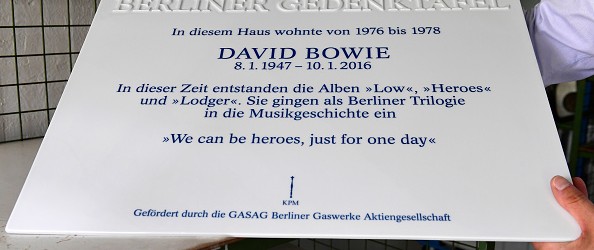
It’s not one of the world’s opera destinations, but Boston Lyric are turning a 40th anniversary to good use.
Looks like they have defined a market hunk.
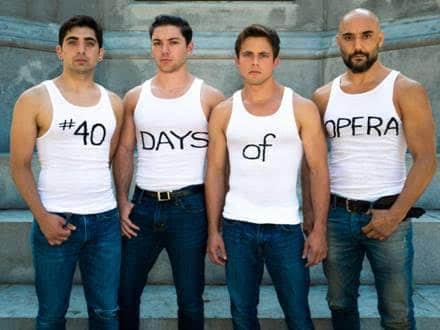
Press release:
Boston, MA — August 22, 2016 – Boston Lyric Opera (BLO) Stanford Calderwood General and Artistic Director Esther Nelson announced today a multi-platform, regional recognition of the robust opera and vocal music offerings in Greater Boston over the next six weeks, and debuted an online calendar that combines them all as part of the company’s “40 Days of Opera” celebration.
Inspired by BLO’s 40th season and its status as the most-enduring opera company in the city’s history, “40 Days of Opera” includes free and low-cost live events designed for audiences of all ages and all levels of familiarity, including those experiencing opera for the first time. BLO, its artistic partners, and producers and music artists across the city will be part of the celebration. In addition to live events, fresh opera-related content on partner sites and social media platforms (#40DaysOfOpera on Twitter, Facebook and Instagram) will spread opera history and information to a variety of audiences. The initiative begins this week with three opera-related events at the Boston Public Library and ends with the final performance of BLO’s Carmen on October 2.
“At the heart of our mission is the belief that opera is for everyone,” Nelson said, “As the largest, oldest opera company in the region, we take seriously our position to develop future audiences for the art form and support the local organizations who produce, present and support it. It is heartening to see how many Boston-area groups are dedicated to making opera a vibrant force here.”
Among the activities during the “40 Days” event: an Opera Walking Tour of Boston from Boston by Foot; concerts and educational events at the Boston Public Library and the Boston Center for Adult Education; a weekend of film screenings of acclaimed opera productions at ArtsEmerson; a special film screening and event at the Somerville Theater; live performance events from Boston Lyric Opera, the Handel and Haydn Society,Odyssey Opera, Guerilla Opera, Opera on Tap, Cerise Jacobs’ Ouroboros Trilogy (presented by ArtsEmerson and Beth Morrison Projects), and local conservatories. An in-school performance will be coordinated with theBoston Public Schools’ Arts division. Other participating groups will share Boston-centric opera highlights and create digital events across social media platforms throughout the 40 days. Additional activities are expected to be added to the calendar.
picture caption: (L.-r.) Alex Davis, Joseph Yonaitis, Richard Wingert, Dave Ginsberg. Photo: Robert Leger
From yesterday’s Sunday Times.
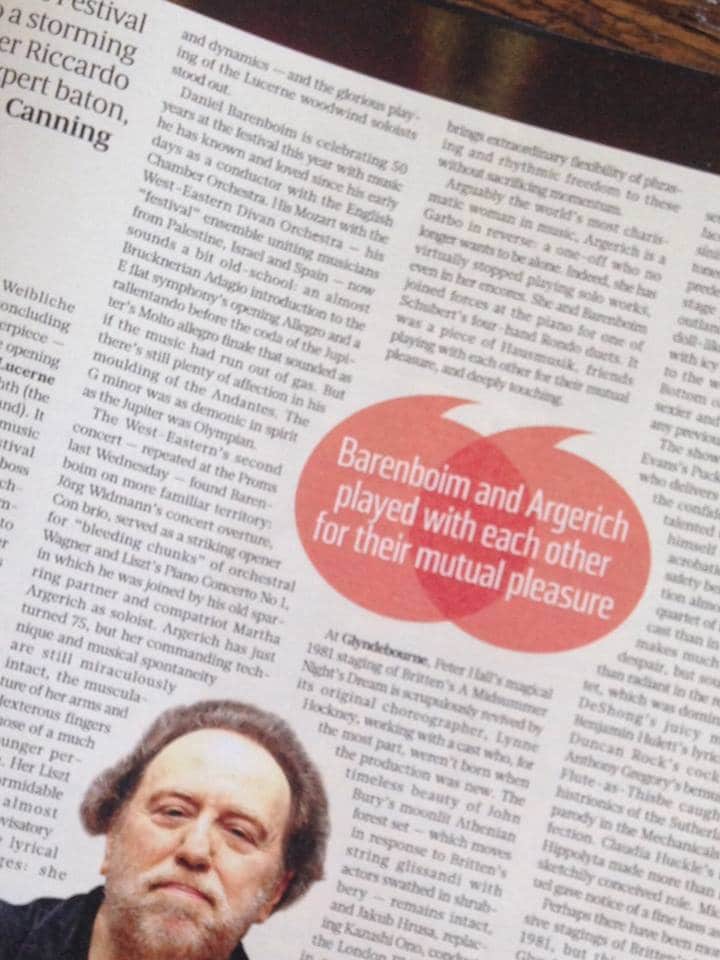
Here’s the actual text:
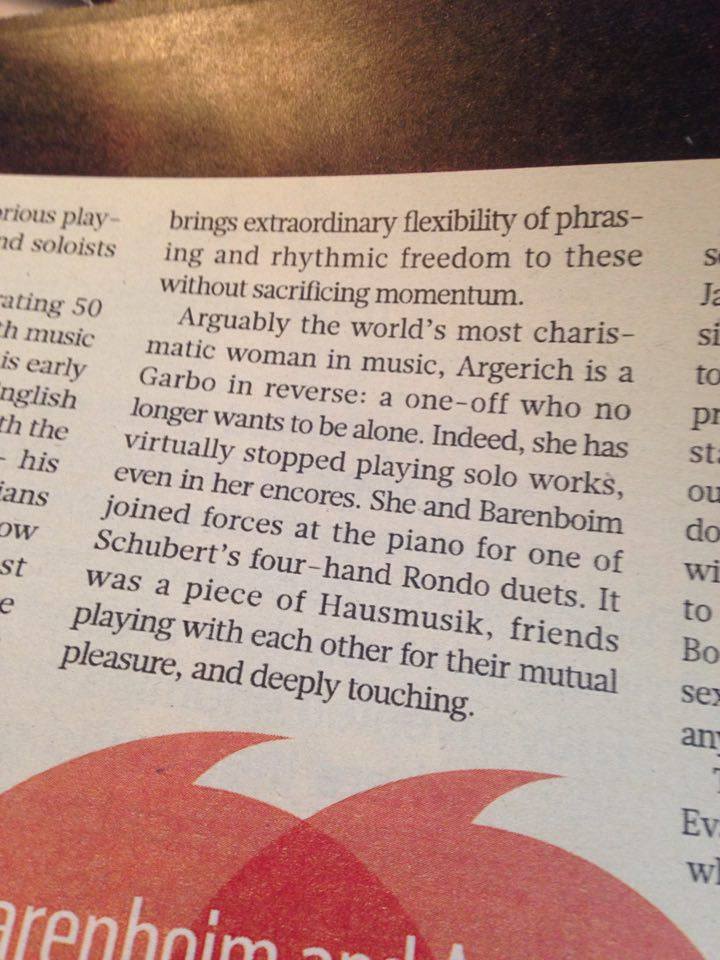
A round robin from William Cheng, of Dartmouth College:
Dear colleagues,
I write to share news of the release of Just Vibrations: The Purpose of Sounding Good (University of Michigan Press, 2016, foreword by Susan McClary). Taking aim at the elitist, antagonistic, and imperialistic dimensions of classical music scholarship and beyond, this book advocates for a care-oriented musicology—namely, for a musicology that upholds interpersonal care as a core feature (rather than merely extracurricular option) of our everyday work.
And you thought it was about understanding the history and meaning of music? How very quaint.
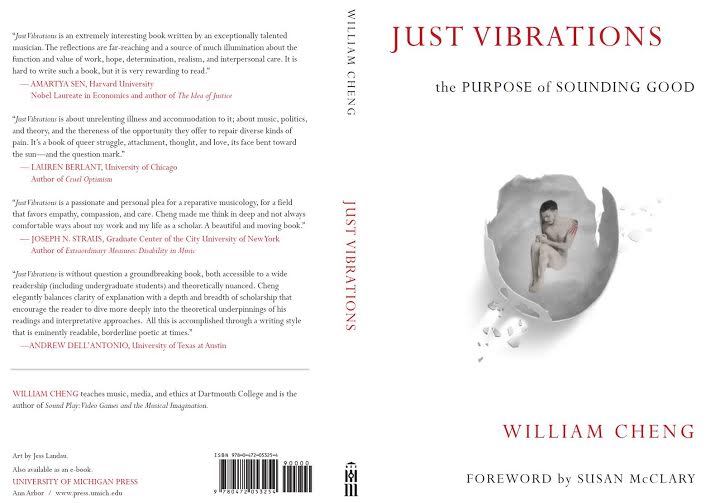
It’s the CD that I described as ‘the one we’ve all been waiting for’, but it’s a poor state of affairs when only one recording tops 100 weekly sales in the whole of the US on the Nielsen Soundscan rankings.
Four, five years back, one hundred sales would not have made it into the top twenty. That’s how far we have fallen.
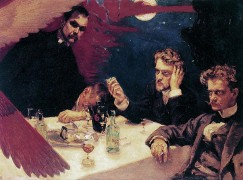
Just for the record, the next best-selling record was Tetzlaff-Vogt Brahms sonatas. In third place was a Kevin Puts symphony, with 80-odd sales.
Toots Thielemans, the Belgian harmonica player who played the theme tune for the 1970s film Midnight Cowboy, has breathed his last.
Christened Jean-Baptiste Frederic Isidore Thielemans, Toots was sought out by such jazz greats as Charlie Parker and Miles Davis. He also accompanied Frank Sinatra and Billy Joel.
He was often nominated as the greatest living Belgian.
Toots died early this morning in his sleep, aged 94.
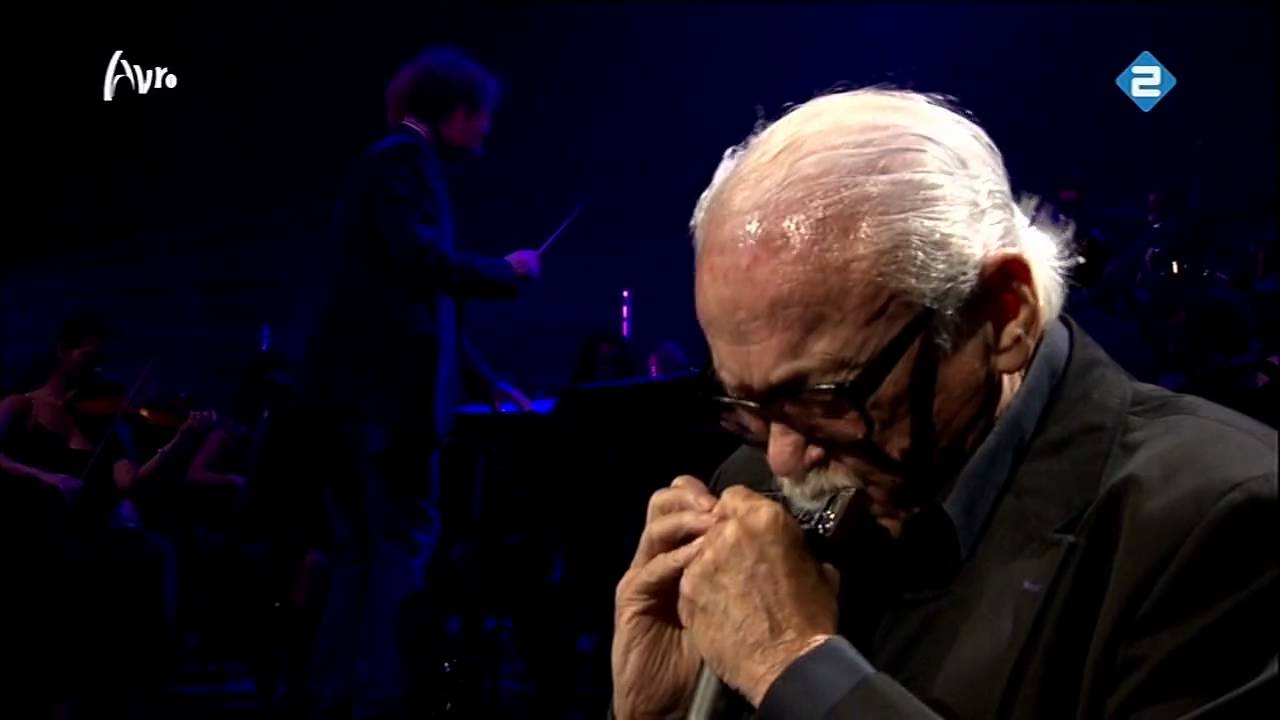
The effulgent Italian soprano, who died this weekend at 59, sang mostly in her own language.
Here, in Rome in April 2012, she performed Richard Strauss’s immortal valediction in German.
The music company BMG has paid the BBC an unspecified sum to own and exploit theme music from shows such as Doctor Who and Wolf Hall.
This could result in popular signature tunes being attached to brands of crisps, soft drinks and motor vehicles.
It doesn’t sound good. Report here.

A Broadway entrepreneur Roland Scahill has been arrested for defrauding investors of $165,000 for a proposed musical about the life of the combustible opera singer, Kathleen Battle.
In a scheme worthy of Bialistok and Bloom, he told investors he owned the rights to Battle’s life story and had signed a Hollywood star, Lupita Nyong’o, to play her on stage and film.
He was last seen leaving the dock in cuffs.
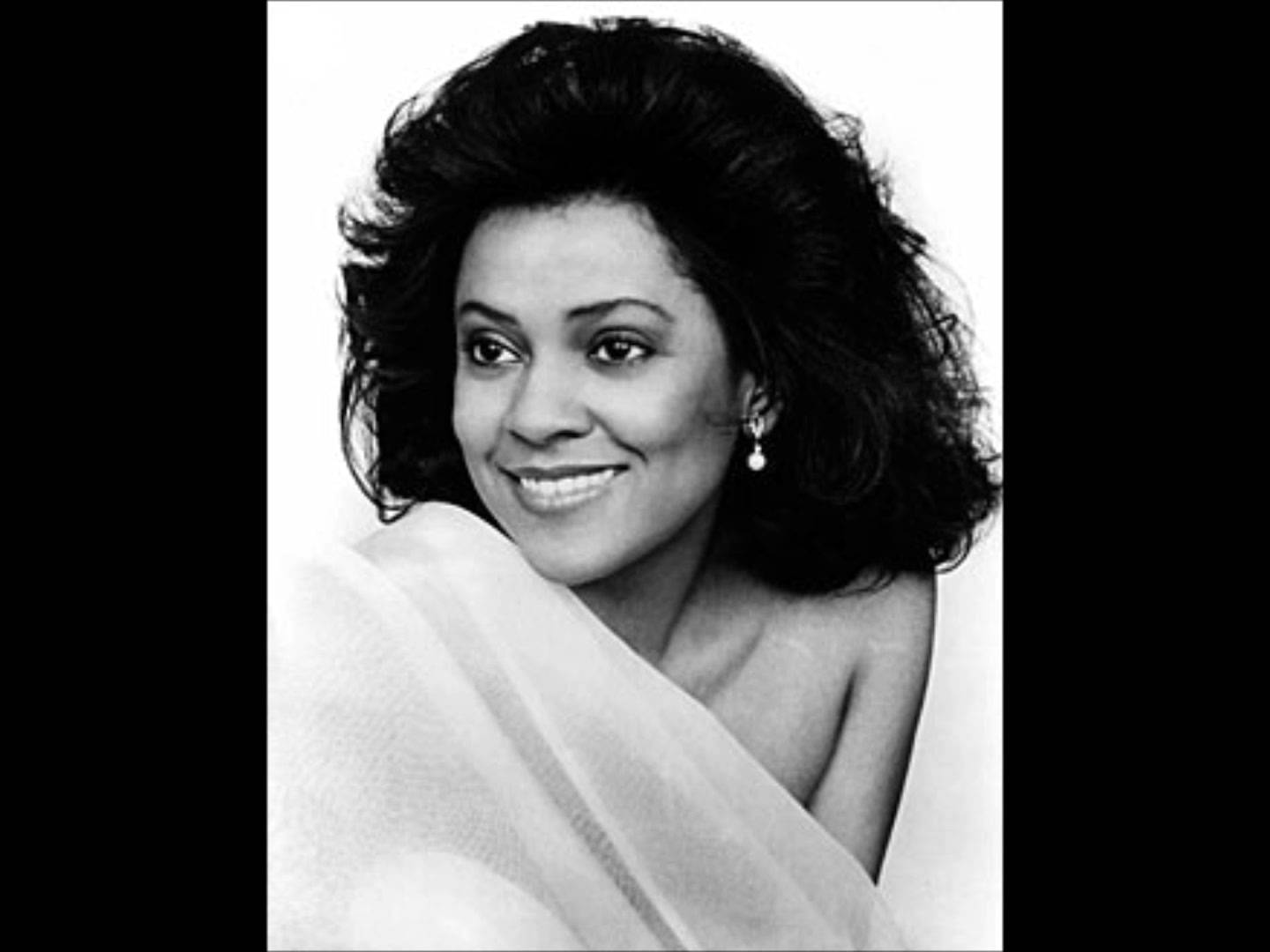
Thirty-five years after he joined the Philadelphia Orchestra, Kazuo Tokito is playing his last concerts this weekend.
His colleague says: Even on his last day at work, Kazuo Tokito is – as always – the first one on stage warming up. Happy retirement, Kaz.
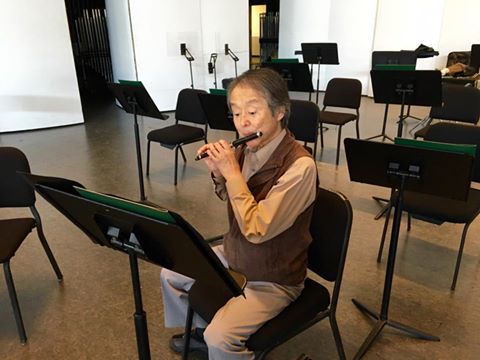
The weekly diary of Anthea Kreston, violinist of the Berlin-based Artemis Quartet:
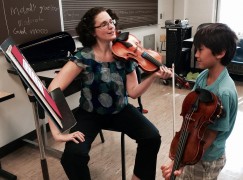
This week we are back to quartet. Several concerts of old repertoire allow us the rehearsal time to build new repertoire – this week we begin Haydn Op. 76 #1, Schumann 3 and Rihm 3. This next week we gather for a festival at a lake – Bebersee – where we play quartet concerts. Jason and I stay for another week of mixed chamber music – from Beethoven to Schnittke.
I returned this week to lend a hand at the Mit Macht Musik program for refugees. This time I was able to see a bit more of the facility – a community garden and a large courtyard with bicycles and children playing is nestled in between the horse-shoe shaped government building. As I walked up to the entrance I took a deep breath in – the smells of cooking hit me with a pungent wall of yum. I wanted to continue up another flight of stairs just to take a look at what was on the stove.
I was greeted with hugs from a couple of the students, all of whom respond enthusiastically to the music – the pieces being taught are familiar songs from the home countries – Afghanistan, Syria, Chechnya. I was happy to see more parents this time – coming to pick up kids and ask questions. I learned that there is a hierarchy of cultures even in this small refugee village – prejudices and long-standing clashes of cultures. Some countries have a history of an established educational system, and some not. Many of the women from particular countries have never attended a school themselves – do not know how to read or write, or the importance of regular attendance. The teachers try to impart this need to them – consistent attendance is a must – a difficult concept for a parent who has never been in a formal learning environment.
Some of the things I observed gave me heavy pause – and made me think that music is indeed a tool which can help bridge cultures, all of which have different priorities. To give a child a voice – a child who may have never had the opportunity to speak her (his) mind before, is a gift which can be given through music in a somewhat gentle way. Each person who had made it all the way from their homes to that village in Potsdam has courage the likes of which we will never be able to understand. And yet, the courage to find your own voice, the pride of discovery and creativity – of collaboration between people of different genders, ages, languages – with no hierarchy – these are things that happen in music – things that you do not realize you are teaching, or doing.
Some families allow their children this freedom, and some are still struggling with this new-found freedom of choice. With love and support of the teachers, I believe they will come to that music room and allow their children the choice to discover their own voices.